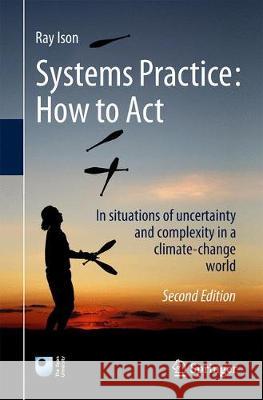Systems Practice: How to Act: In Situations of Uncertainty and Complexity in a Climate-Change World » książka
Systems Practice: How to Act: In Situations of Uncertainty and Complexity in a Climate-Change World
ISBN-13: 9781447173502 / Angielski / Miękka / 2017 / 354 str.
This book shows how to do systems thinking and translate that thinking into praxis (theory informed practical action). It will be welcomed by those managing or governing in situations of complexity and uncertainty across all domains of professional and personal life. The development of capabilities to think and act systemically is an urgent priority. Humans are now a force of nature, affecting whole-earth dynamics including the earth's climate - we live in an Anthropocene or Capitalocene and are confronted by the emergence of a 'post-truth', 'big data' world. What we have developed, organisationally and institutionally, seems very fragile. An imperative exists to recover whatever systemic sensibilities we still retain, to foster systems literacy and to invest in systems thinking in practice capability. This will be needed in future at personal, group, community, regional, national and international levels, all at the same time.
Systems Practice: How to Act is structured into four parts. Part I introduces the societal need to invest in systems thinking in practice, in contexts of uncertainty and complexity epitomised by the challenges of responding to human-induced climate change. Part II unpacks what is involved in systems practice by means of a juggler isophor; examining situations where systems thinking offers useful understanding and opportunities for change. Part III identifies the main factors that constrain the uptake of systems practice and makes the case for innovation in practice by means of systemic inquiry, systemic action research and systemic intervention. The book concludes with Part IV, which critically examines how systems practice is, or might be, utilised at different levels from the personal to the societal.











